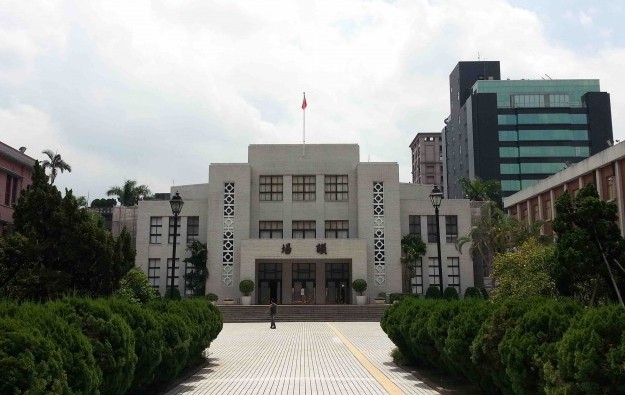Public, economics could tip Taiwan govt to casinos: GMA
Jun 23, 2016 Newsdesk Latest News, Rest of Asia, Top of the deck

A combination of popular demand in outlying islands and a desire to boost Taiwan’s economy as a whole could lead the governing Democratic Progressive Party (DPP) to reconsider its long-standing opposition to casino gaming, says a briefing paper from lawyer Bill Bryson of Global Market Advisors LLC (GMA).
Referring to two branches of Taiwan’s administrative system, Mr Bryson wrote: “The DPP government – both in the Executive Yuan and the Legislative Yuan [pictured] – was elected on a platform of improving the economy and creating new jobs and opportunities for the people of Taiwan.”
“Passing [casino-related] legislation that would bring billions of dollars of investment and thousands of jobs into the offshore islands… might seem like a desirable enough outcome; [so] that the party might be willing to set aside its former opposition to casino gaming on the offshore islands,” he added.
The idea of allowing casino gaming in one or more of the three main chains of outlying islands – Matsu, Kinmen and Penghu – has been under discussion for several decades.
Brokerage Union Gaming Securities Asia Ltd suggested in a January note that the legalisation of casinos in Taiwan could face new challenges following the election of Tsai Ing-wen, from the DPP, as president.
In May, Taiwan’s Central News Agency reported that more than 5,000 signatures of eligible voters in Taiwan’s outlying island chain of Penghu – currently governed by the DPP – had been collected, paving the way for a local referendum on whether Penghu will allow casino gaming within its county boundary.
A legal prohibition on commercial casino gambling was lifted in 2009 by Taiwan’s government; in relation only to Taiwan’s outlying island chains. It came via amendments to existing legislation called the Offshore Islands Development Act (OIDA). A ban on casino gaming still applies to the main island.
In a referendum in July 2012, the residents of Matsu voted in favour of casino resorts as a means of attracting tourists and boosting the local economy. But a Penghu referendum in September 2009 resulted in more than 17,000 Penghu residents voting against such a plan for their county.
It would still be up to Taiwan’s central government to authorise the regulation of casino resorts on outlying islands.
A piece of legislation necessary for that process – called the Tourism Casino Administration Act – has been stalled in Taiwan’s Legislative Yuan since 2013.
“In the event that the new Penghu referendum passes, the DPP government would be faced with a potential conflict between the party’s prior opposition to the establishment of casino zones in Penghu, and the desire of the residents of a DPP-governed island to establish casino zones,” wrote Mr Bryson.
“While the Legislative Yuan was not willing to pass the [Tourism Casino Administration] Act for the sake of Matsu alone, the Legislative Yuan might be more inclined to pass the Act if a majority of the eligible offshore islands have held successful referenda,” he added.
“The mixture of common law and civil law influences makes the Act a bit Taiwan-unique, but the licensing and regulatory regime described by the Act is likely to be found acceptable by both foreign operators and their regulators,” stated Mr Bryson.
According to the paper, the existing draft states that the number of casino licences to be issued for each offshore island would be determined by the gaming regulator and approved by the Executive Yuan, providing for 30-year licence terms.
The success of a Taiwan casino industry could depend on mainland China’s visa policies, several investment analysts have said. Mainland China officials last year ruled out the idea of that country’s citizens being allowed to travel to any of Taiwan’s outlying islands gaining the right to operate casinos.
GMA’s Mr Bryson has practised law in, respectively, New York, in the United States, and in Taipei, the capital of Taiwan, for a total of more than 25 years.
His biography – included in the Taiwan briefing paper – additionally states he has represented casino gaming companies, gaming machine manufacturers and consultants to the industry in Taiwan and 38 other jurisdictions.
Related articles
-
 Taiwan firm eyes Europe slot market via...
Taiwan firm eyes Europe slot market via...Mar 26, 2024
-
 GMA confirms death of associate partner...
GMA confirms death of associate partner...Feb 23, 2024
More news
-
 The Baron Upright, a new cabinet from...
The Baron Upright, a new cabinet from...Nov 22, 2024
-
 Wynn Al Marjan building structure 55pct...
Wynn Al Marjan building structure 55pct...Nov 22, 2024
Latest News
Nov 22, 2024
Aristocrat Gaming, a supplier of slot machines to the land-based sector, said in a press release issued via the United States that its slot game “Bao Zhu Zhao Fu Ignite” – from its...Sign up to our FREE Newsletter
 (Click here for more)
(Click here for more)
Pick of the Day
”As we navigate the final steps of the licensing process, we remain confident in our ability to align with Brazil’s regulatory requirements”
Eusebio Tanco
Chairman of DigiPlus Interactive
Most Popular
 Gaming technology firm IGT reports hacking incident November 21, 2024
Gaming technology firm IGT reports hacking incident November 21, 2024  US$30bln 2025 GGR target achievable for Macau: CE November 19, 2024
US$30bln 2025 GGR target achievable for Macau: CE November 19, 2024  Marina Bay Sands projects 40pct EBITDA leap post extension November 20, 2024
Marina Bay Sands projects 40pct EBITDA leap post extension November 20, 2024  Macau big-event outdoor venue gets trial run Dec 28: CE November 20, 2024
Macau big-event outdoor venue gets trial run Dec 28: CE November 20, 2024  Future of gaming is the online format: Pagcor chairman November 20, 2024
Future of gaming is the online format: Pagcor chairman November 20, 2024









